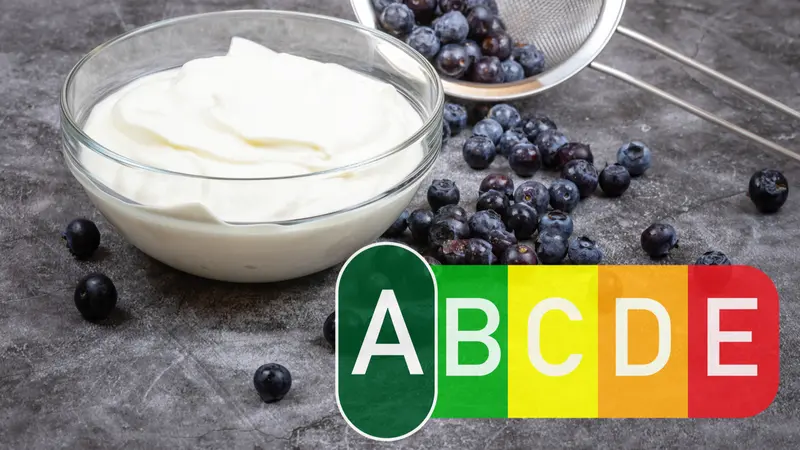

WELLthier Living and Aging

WELLthier Living and Aging
Findings from World’s Largest Nutrition Study
Our health is influenced by a range of factors, including genetics, lifestyle, diet, exercise, and the environment. Given the complex relationships of these factors and the fact that no two people eat the same diet, it is very difficult to determine the role of nutrition in health and disease. But one research group in France has risen to the challenge by collecting massive amounts of data.
The NutriNet-Santé study, the world's largest and most complex ongoing, web-based, public-institution-funded nutrition study, was launched in France in 2009. Participants aged over 15 years old with access to the internet are recruited using multimedia campaigns. Questionnaires are completed by participants online using a dedicated website (www.etude-nutrinet-sante.fr). By 2021, more than 170,000 people were participating in the study. The study has been expanded to Belgium and the researchers are planning similar projects in Canada, Mexico, and Brazil.
The goals of the study are to (1) investigate the relationship between nutrition, health, lifestyle factors, and mortality; and (2) examine the factors that influence dietary patterns, such as economic and cultural factors.
The end points of study are considerable and include measurements of:
- Cancers
- Cardiovascular disease
- Type-2 diabetes
- Hypertension
- Metabolic syndrome
- Depression
- Migraines
- Rheumatoid arthritis
- Cognitive decline
- Quality of life
- Weight
- Height
- Mortality
- Mental health, including anxiety disorders, sleep disorders, addictive behaviors, and eating disorders
- COVID-19 infection
- Multi-morbidity (combination of previously listed mental and physical health outcomes).
The study tracks these health outcomes with questionnaires every six months for up to ten years. Mortality information is provided through the French National Mortality Registry. In addition, researchers have collected serum, plasma, and blood for genetic analysis, plus urine and stool samples to analyze gut bacteria from about 20,000 of the participants.
Even more significant is the information the researchers collect about food packaging, cooking practices, mode of production, physical activity, tobacco and drug use, environmental factors, and domestic and professional exposures. Dietary intakes for each participant are assessed when the participant enters the program and then every six months through a series of three non-consecutive randomly assigned 24-hour dietary records. Using their own food composition database of more than 3,500 items, daily energy, alcohol, micro- and macronutrient intakes are calculated by researchers. The study is linked to the medical and insurance records of the participants to obtain information about medications, diagnoses, and long-term sick leave.
So, after more than ten years of research, what has been the impact of the NutriNet-Santé study? The data has been used for numerous other studies that have been published in medical journals around the world. Some examples include studies of processed foods, organic foods, and COVID-19.
Data from the NutriNet-Santé study found correlations between the consumption of ultra-processed foods and increased risks of cancer, cardiovascular disease, depression, type-2 diabetes, obesity, gastrointestinal disorders, and mortality. In each case, NutriNet-Santé plans to drill down on the causative aspects of the disease relationships to nutrition, diet, and additives.
Study data has begun to prove the benefits of eating organic. Researchers found that consumption of higher concentrations of organic food correlated with decreased risks of cancers, obesity, and metabolic syndrome. Researchers also determined that people eating more organic foods had lower levels of pesticides in their urine.
The NutriNet-Santé study has been tracking how diets have changed, for better or worse, during the COVID-19 pandemic. The researchers are using this new data to look for associations between dietary patterns and infection risk or infection protection.
Another outcome of the study is the voluntary implementation of what is called the Nutri-Score. The Nutri-Score is a nutritional label that converts the nutritional value of food and beverages into a simple overall score. It is based on a scale of five colors and letters (A is green to represent the best nutritional quality, while E is dark orange to show it's the lowest). The scoring system considers the amount of sugar, saturated fats, sodium, protein, fiber, fruits, vegetables, nuts, and legumes. The Nutri-Score has been officially recommended by health authorities in France, Germany, Belgium, Netherlands, Luxembourg, Spain, and Switzerland. Separate research published in Science & Research shows that when shoppers have access to the Nutri-Score label, they make healthier food choices.
The NutriNet-Santé study continues, and the world looks forward to the findings from this sophisticated and important research into dietary patterns and the complex relationships between nutrition and health.
REFERENCES
Julia, C. & Hercberg, S. (2017, May 17). Nutri-score: evidence of the effectiveness of the French front-of-pack nutrition label. Science & Research. https://www.ernaehrungs-umschau.de/fileadmin/Ernaehrungs-Umschau/pdfs/pdf_2017/12_17/EU12_2017_WuF_…
Newman, T. (2021, February 2). What have we learned from the world’s largest nutrition study? MedicalNewsToday. https://www.medicalnewstoday.com/articles/what-have-we-learned-from-the-worlds-largest-nutrition-study
U.S. National Library of Medicine. (2021, July 26). The NutriNet-Santé study. U.S. Department of Health and Human Services, National Institutes of Health. https://clinicaltrials.gov/ct2/show/NCT03335644


 By
By






